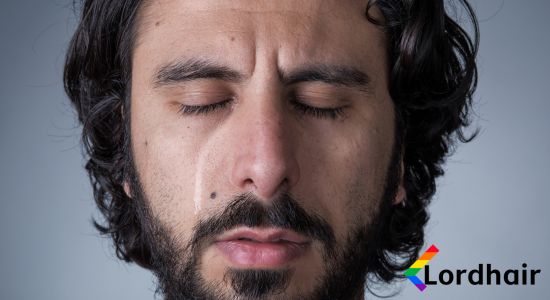Why Men Don't Turn to Others for Help
- Written by Ray Fernandez
- | Published Jun 20, 2023
- |
- 3 min read
 Listen to the full text
Listen to the full text

Men and women experience mental health problems in different ways. Men are more likely to keep their feelings hidden and not seek help, which can make it harder for them to recover. In a 2018 study on mental health, the Canadian Mental Health Association found that men were more likely than women to experience symptoms of depression and anxiety, but less likely to seek help for them.
The stigma around men's mental health can affect them in many ways. It can prevent men from seeking help and make them feel like they are weak or 'less of a man'. They may also worry about being judged if they ask for help, or admit to having a mental health problem. I fell into this trap when I started experiencing thinning hair. I remember the panic about who am I going to tell and how will I be perceived. I was even embarrassed to go to a centre in London which specialises in hair loss (so they claim).
You might be surprised to learn that you're not alone in your experience. Growing up I saw and somewhat learnt that men were expected to be independent and strong, so we can't show emotion or ask for help when we need it.
We must talk about these issues together as a community so we can break down some of the barriers preventing men from seeking support.
Talk About Hair Loss to Normalise This Condition

The first step to breaking down these barriers is to understand the various reasons why men may be reluctant to talk about their experiences of hair loss or thinning hair.
It's easy to dismiss men's problems as 'nonsense' or 'childish', but these issues are very real and can have devastating effects on the lives of men.
In the UK, suicide is the biggest killer of men under 45 years old - with four times more deaths than all other causes combined. And yet only one in three people who die by suicide are referred for mental health support by their GP (compared with two-thirds of women). This means that many men may not receive help until it's too late. Let me clarify, I am not suggesting hair loss or thinning hair can lead to suicidal thoughts, unlike some of the medications associated with preventing hair loss.
It could be argued that this is because we expect men to be strong and independent - so they're reluctant to talk about their emotions or seek help when they're struggling mentally. However, there are other reasons why seeking support might be harder for some people than others:
Men and Mental Health
Men have a significantly lower rate of mental health literacy than women. This means that they're less likely to understand what depression or anxiety are and how they can be treated. Men are more likely to experience stigma around mental health issues, which might make them reluctant to seek help because they don't want others to know about their struggles.
-
Men can keep their mental health hidden, but they shouldn't.
-
Mental health is a serious issue that affects everyone. It's not just women or girls who suffer from it; men do too.
-
You don't have to be "womanly" to have depression, anxiety or other mental illnesses. You don't need to cry all the time or be constantly sad either - these are stereotypes that aren't true of anyone with depression/anxiety/etc., whether they're male or female (or any gender).

The fact that men don't cry as much as women doesn't mean they're not allowed to. The fact that men are often discouraged from showing their emotions doesn't mean they can't feel them. Men have feelings too, and sometimes those feelings need to be expressed.
The stigma around men's mental health is a problem that needs to be addressed. I know the feelings I had before I accepted my thinning hair and talking about it and telling people about this condition allowed me to normalise it for myself. Men have been taught to hide their feelings and keep them in, but this can lead to serious problems down the line. If you are struggling with hair loss and it's impacting your mental health issues, don't hesitate. Get help today by talking with someone who understands what it means to be male and how they can help you find solutions.
- Why do gay men and black women understand me better?
- Why Lordhair is a type of hair club
- Does ageing affect the rate at which I lose my hair?
Lordhair Is Here for You
If your hair loss is affecting you mentally then let Lordhair help you do something about it. Wearing a hair system and having hair again really can do wonders for your mental well-being. You only need to check out customer stories to see just what a hair system can do for men. Furthermore, you'll find plenty of support groups and online forums where people share their stories, struggles, and victories in dealing with hair loss across the internet. Indeed, Lordhair even has its own Facebook group where you can speak with men going through the same hair loss issues as you.
So, reach out to Lordhair directly and speak to a real, friendly person. Let's give you hair and happiness again!
Ray is a guest contributor to our blogs with an extensive background in PR. Ray loves to discuss his own hair system journey by offering insights into wearing and styling a hair system as well as providing observations on the role of hair in sexual and gender identity from an LGBTQ+ perspective. Be sure to check out more of Ray’s Diversity content.



